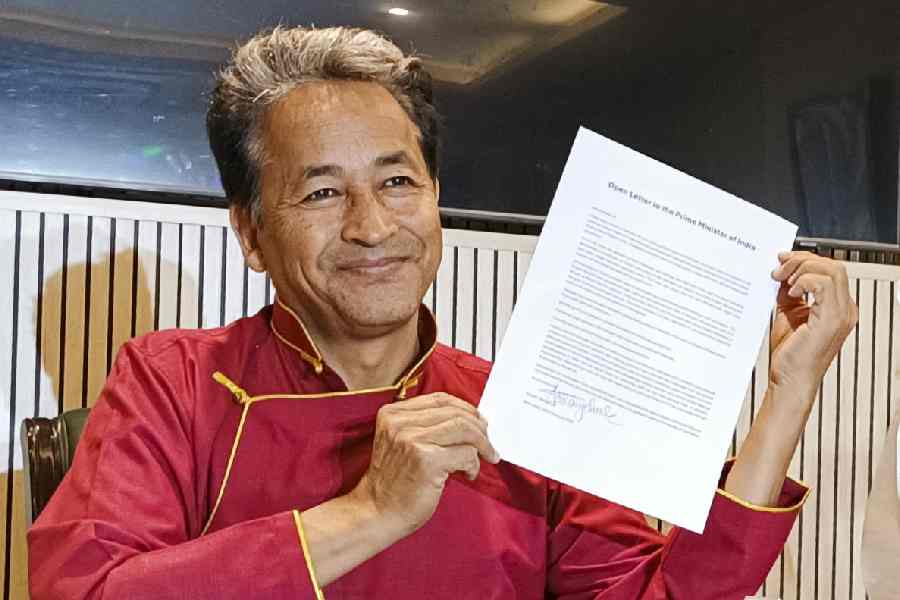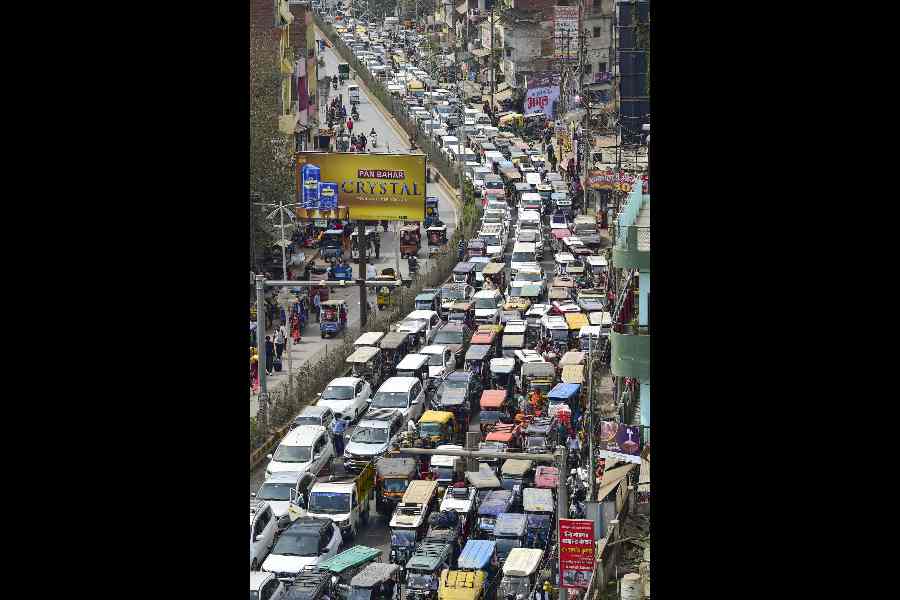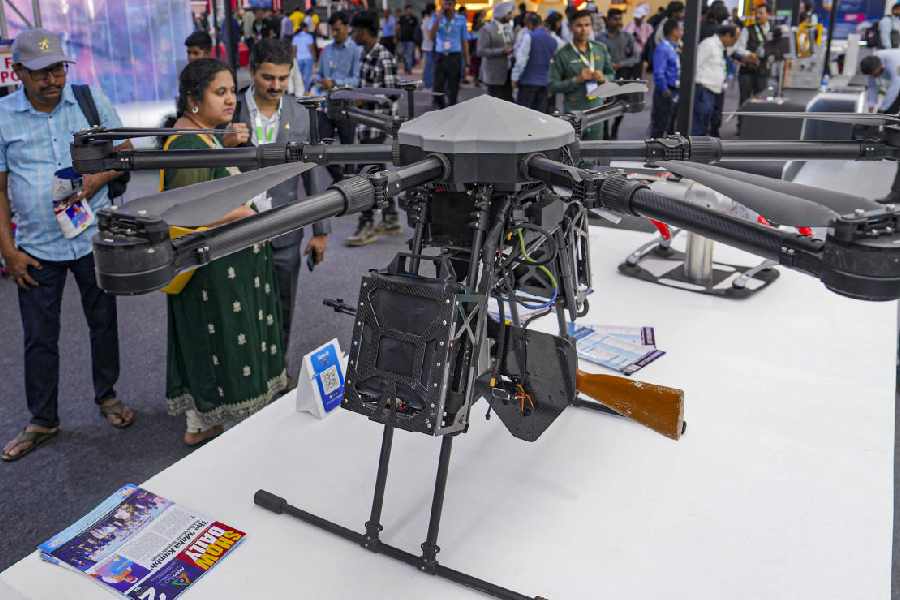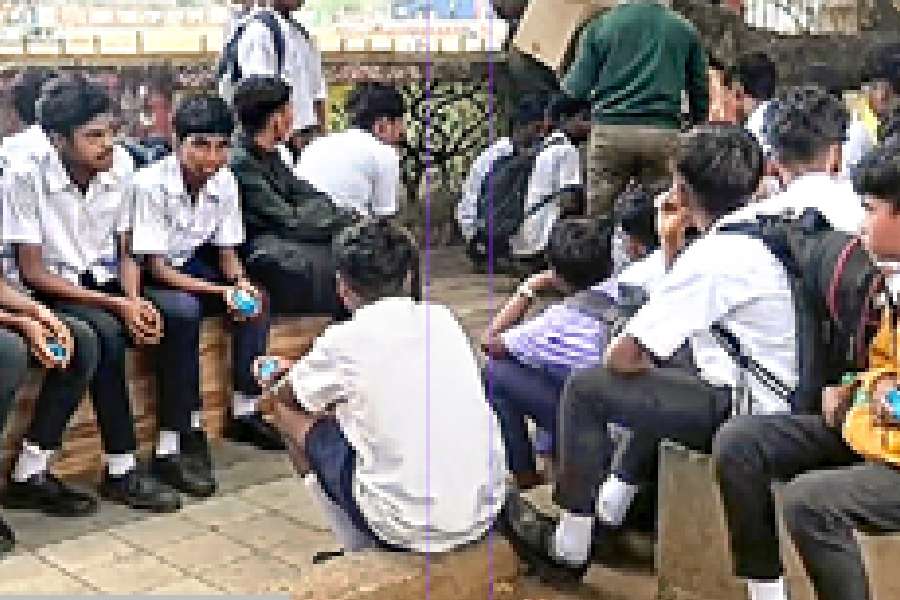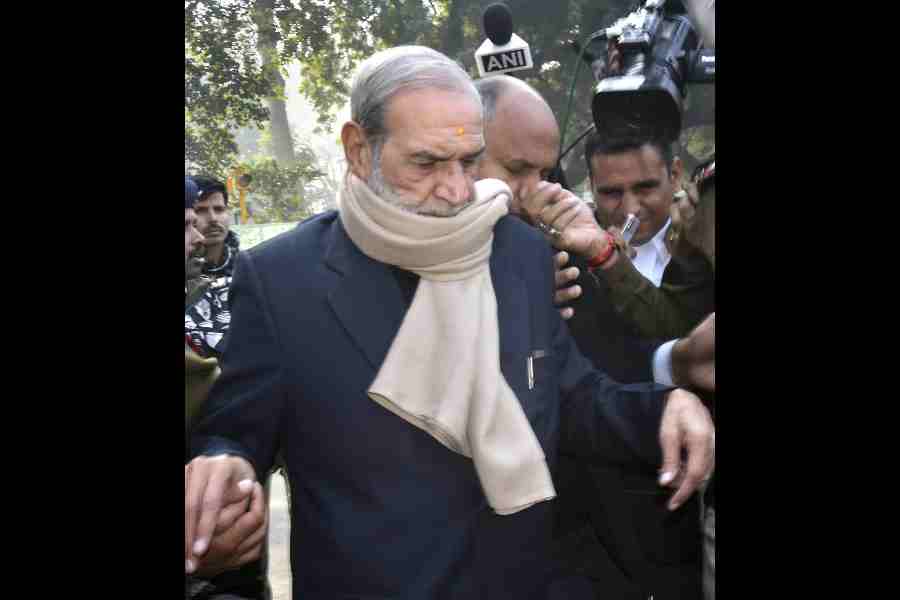Strange logic
Sir — As much as we enjoy films based on scientific concepts, the jargon employed in them can often be overwhelming for the average viewer. But what is more problematic is belittling viewers for not being able to grasp the obscure equations. For instance, the recently-released film, Oppenheimer, which is a biopic on the father of the atomic bomb, led to an onslaught of memes on social media, trolling those who have studied Arts for not fathoming the concept of nuclear fission or advocating that only those with an advanced understanding of physics are qualified to watch the film. While facts do accentuate the understanding of fiction, such denigration is a reflection of the unhealthy obsession that Indian parents have with their children studying science.
Reeta Dasgupta, Delhi
On icons
Sir — The 2024 general election will be a high-stakes battle to choose the nation’s next leader (“Iconic presence”, Aug 3). A total of 26 Opposition parties have formed a mega-alliance to take on the Bharatiya Janata Party in the election. But none of the leaders in the Opposition alliance can match the stature of the prime minister, Narendra Modi. In spite of there being charges of religious polarisation and widespread evidence of atrocities against minorities, Modi still continues to be the most popular leader, both in the country and abroad. The Congress leader, Rahul Gandhi, is yet to garner a cult following like that of Modi’s.
It is too early to speculate whether the Opposition alliance can pass the acid test of unity and come up with a coherent seat-sharing formula. Until then, it is going to be ‘advantage Modi’, it seems.
Aranya Sanyal, Siliguri
Sir — In “Iconic presence”, Swapan Dasgupta casually and, quite ridiculously, attributes the word, icon, to Narendra Modi, while downplaying several of the latter’s problematic features. It would be unfair to hail the prime minister as an “icon” when he has been accused of several transgressions. This includes peddling hatred during election speeches, failure to adhere to ‘raj dharma’, orchestrating the toppling of democratically-elected governments in Opposition-ruled states, showing utter disregard for constitutional procedures and so on. Perhaps ‘Megalomaniac presence’ would have been a better title for Dasgupta’s piece.
P.K. Sharma, Barnala, Punjab
Against love
Sir — Bhupendra Patel, the chief minister of Gujarat, has said that his government would explore the possibility of making parental consent mandatory for love marriages (“No love allowed”, Aug 6). This is a bid to subjugate women and reinforce patriarchal norms on them under the garb of ensuring protection.
The chief minister’s statement belied his attempt to placate the Patidars who have raised objections to their daughters marrying outside the community. It is also unfortunate that such conservative sentiments have been echoed by political leaders across the spectrum.
Srija Maji, Calcutta
Sir — Gujarat has long been the laboratory for contentious Hindutva projects. The absurd move to prohibit interfaith and inter-caste unions must thus be seen in the context of the saffronisation agenda.
The move is not immune to logistical loopholes: how would parental consent be obtained? Would couples need to get a no-objection certificate from their parents? What would be the procedure adopted in case of migration or live-in relationships?
Anthony Henriques, Mumbai
Vendetta politics
Sir — The former prime minister of Pakistan, Imran Khan, was recently convicted in the Toshakhana graft case by a trial court (“Imran arrested, party appeals”, Aug 6). This was clearly an attempt by the government to silence him; a three-year jail term would likely end Khan’s chances of contesting the next general election. However, the real reason behind Khan’s downfall might be that he gradually fell out of favour with Pakistan’s military after being backed by it in the 2018 election. This shows the lengths to which the military can go to wield power in the country.
Even after losing power last year, Khan has continued to hold sway over Pakistanis with his populist policies. It remains to be seen whether he can wriggle out of this situation.
G. David Milton, Maruthancode, Tamil Nadu
Sir — Imran Khan deserves to be penalised for his controversial policies that plunged Pakistan into one of its worst crises. His flawed foreign policy also downgraded the nation’s global standing. Further, his hot-and-cold response to India failed to better ties between the two neighbours.
Murtaza Ahmad, Calcutta
Ethical calling
Sir — Artificial Intelligence has emerged as a transformative force, impacting industries globally. But its power to reshape journalism remains questionable. Journalism relies heavily on experience and ethical decision-making in segments such as reporting, writing and publishing. Mechanisation is but a small part of the profession.
Journalism involves a considerable degree of emotional intelligence, which cannot be replicated by AI. Besides, robots are also prone to making errors.
Ranganathan Sivakumar, Chennai
Local needs
Sir — Supermarkets have been coming up in mofussil areas (“Waitrose days”, Aug 6). But unlike those in metropolises, there is a dearth of meat like pork or beef in the small-town supermarkets. Other food items such as cheese and mayonnaise have no takers and are thus wasted. Authorities should tailor the items according to local needs.
Basudeb Dutta, Calcutta


